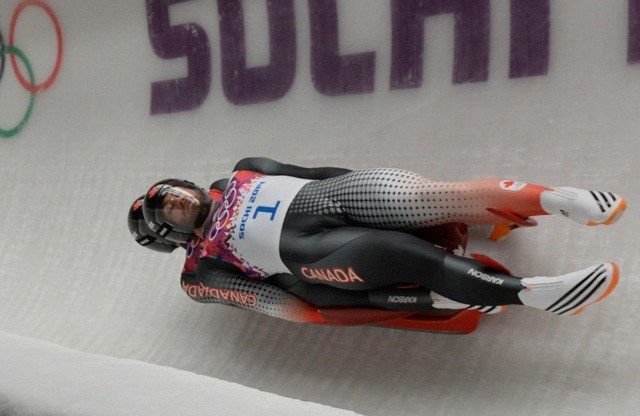
Wolfgang Staudinger has been at the helm of the Canadian luge team since 2007, and has been one of the big reasons why his athletes posted the country’s best results at any Olympic Games in Sochi this week.
“Staudi,” as he’s known around the track, hails from the luge mecca of Königssee, Germany, and has been involved with the sport for decades. He won a bronze medal for West Germany in doubles at the 1988 Games in Calgary and is one of the sport’s brightest minds.
So when he goes to the media with allegations of cheating at an Olympic Games, I’m inclined to listen.
After Staudinger’s relay team endured a disappointing fourth-place finish — Canada’s third time finishing with the wooden medal in luge at these Games, after Alex Gough’s fourth in women’s racing and Tristan Walker and Justin Snith finished in the same spot for doubles — he told the Toronto Star’s Kerry Gillespie he believed the track may have been tampered with.
[jump]
Sliding tracks aren’t unlike hockey rinks in that their ice temperatures are regulated by an ice plant. Colder ice is conducive to faster times, while warmer temperatures slow sleds down. Essentially, it’s Staudinger’s argument that Russian officials turned up the heat on the track after the silver medal-winning Russian team took its run early on the start list.

“Canada was silver at the top but the further we went down, the slower we got, and that’s a clear sign that the track slowed down dramatically,” Staudinger told the Star on Thursday.
“It’s always hard to prove, but I’m long enough in the business that I can tell you when people, especially the Austrians who won silver yesterday (doubles team Andreas and Wolfgang Linger), were dropping half a second, that’s not normal.”
Now, the Canadians didn’t have their best race on Thursday, and the athletes — Gough, Walker, Snith and Sam Edney — were the first to admit that after coming up short of the podium. But when you listen to the arguments Staudinger makes, it doesn’t sound like such a wild conspiracy theory.
First, consider that Russia and the bronze medallists from Latvia combined for just a single relay medal on the World Cup tour this season. Canada captured silver at four of the six events that held a relay race, while Austria reached the podium three times. Luge is a fairly predictable sport, with the final results not changing much from venue to venue, so aside from Germany’s gold, the makeup of the podium Thursday was a bit surprising.
In luge relay, the seeded teams are allotted the final group of spots on the start list. Austria, who finished a distant seventh place, and Canada were the last two teams to slide in the relay, so if there was any change to the ice temperature mid-race, they would have been the teams most affected.
But it gets even more interesting when you look at what the Russian team did during the final World Cup stop of the season at Sigulda, Latvia. Albert Demchenko, who captured Olympic silver for the host nation in men’s competition earlier this week, was pulled off the start list at Sigulda, which effectively dropped Russia’s world ranking and put them out of the seeded group of nations for the relay, giving them a spot much earlier on the start list in Sochi.
Although the Germans were the third-last team to race on Thursday and went on to win by more than a second, that’s a team that featured the three gold medal-winning sleds from individual events earlier in the Olympics. They've won relay races by a wider margin this season, too, so it's tough to draw any conclusions from their times.
The IOC isn’t buying Staudinger’s argument, telling him to get over it unless he can prove the allegations, said a report from Postmedia’s Sean Fitz-Gerald.
“As you know, in every competition, you always have people believing that people have tricks,” said Gilbert Felli, the IOC’s executive director of the Games, during a Friday news conference. “And I think they should let it go unless they have proof and someone can bring proof to any wrongdoing.”
With four top-five finishes at the Sanki Sliding Center this week but no medals, the results couldn’t have been much more aggravating for Canada. But it’s quite another thing to feel cheated out of a medal altogether.



